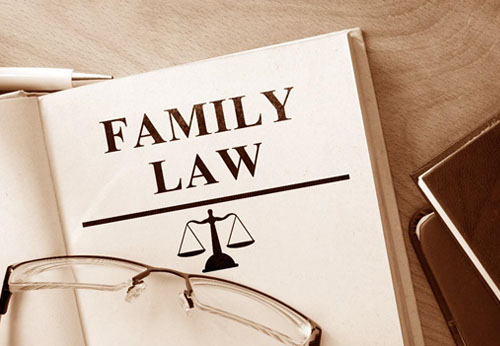 Can All Aspects Of Family Law Or Divorce Be Covered In Mediation?
Can All Aspects Of Family Law Or Divorce Be Covered In Mediation?
Mediation does not cover all aspects of a family law or divorce case. However, most of the typical issues in a divorce or custody case can be mediated. The benefit of this is that if you went into your divorce or custody situation already in agreement, you wouldn’t need the court for anything.
Most of the time, people have issues because they disagree about things like the custody schedule. The parties disagree about a custody schedule often because many factors are involved. Many things can and need to be addressed in mediation, such as the following:
- When should the children be with their mom?
- When should the kids be with their dad?
- When are pickup and drop-off supposed to happen?
- Where do the kids go to school?
- What happens if we disagree?
- Which parent has decision-making authority for the children?
- How do both parents make decisions together now that they’re separated or getting divorced?
- And more…
The court would prefer if parents agreed about their children and decided together rather than bringing it to court and asking a judge to decide. The judge doesn’t know your family, so typical custody access situations can and should be resolved in mediation. As family law attorneys, we agree that mediation is probably the best way to resolve custody issues.
We also agree that mediation is the preferred way to resolve some divorce issues. So, if you have problems about how to divide marital property, what to do with a family home, how to divide retirement accounts, and whether there should be alimony, you can see that they’re all addressed in mediation.
Like in a child custody mediation, the court would prefer the parties to reach an agreement on their own. It’s essential to come to an agreement that works for you instead of coming to the court and asking a judge to make those decisions about your family and your things.
Some issues that come up in family law frequently can’t be mediated. When custody issues involve allegations of domestic violence, allegations of child abuse, or strict denial of access to the children from one party or the other, they are not appropriate for mediation.
When it comes to complex divorce cases that require outside information or an expert’s opinion, such as an accountant, mediation is possible with the help of another professional who can provide some input.
Whether child support issues can be mediated differs between counties because Maryland uses the Maryland child support guidelines. When you bring child support before the court, they use a formula that includes both parties’ incomes.
The formula also includes specific expenses, such as childcare, health insurance, and extraordinary medical costs. The incomes and expenses are plugged into the formula’s calculator, which then calculates an amount. That amount will be the child support payment one parent will pay the other parent.
In some Maryland counties, even if the parties agree on an amount for child support that is lower than what the child support guidelines would give, the court will still have to decide whether to approve the lower amount.
In other Maryland counties, getting approval from the judge for a lower amount of child support takes work. The judges in those counties are more strict, so it depends on the judge, the parties involved, and what both parties have agreed to. Whichever Maryland county court you must attend, please be aware that your agreement may require the court’s approval.
How Long After Mediation Is A Divorce Typically Finalized?
If you hire a private mediator, you may be going to mediation before anyone’s even filed for a divorce, and the same for custody. Or you may meet with your mediator after filing for divorce because you realized you’d reach an agreement rather than go through a whole litigation process.
If you’ve mediated an agreement and have not yet filed for divorce, then what ends up happening is filing for an uncontested divorce. An uncontested divorce tells the court that you both agree and want to get divorced, and neither has any contested issues.
In that case, it’s just a matter of getting through the procedural steps of the divorce. It can happen quickly as the court can make it happen based on the judge’s docket’s availability. If you do everything in the fastest procedural manner possible, you could be divorced within a couple of months, and that’s just due to how long it takes the court to process things and put a hearing on the docket for you.
Suppose you are in mediation and have already filed for divorce. In that case, it will depend on the tentatively set dates for your divorce hearings. But, once you’ve reached an agreement, you can often let the court know that the case is no longer contested and both parties have reached an agreement. If you already have a court date that was supposed to be contested, the court can change it to uncontested so that you go to court on the same date and get your divorce.
Suppose you have yet to set a court date, but you’ve just settled on all your issues. In this situation, you can ask the court to put you on the docket for an uncontested case, and they’ll usually do that quickly. Within a month or so, your uncontested divorce case could be seen because these cases only take about 15 minutes, so it’s easy to find a spot on the docket.
For more information on Mediating Certain Aspects Of A Divorce In MD, a free initial consultation is your next best step. Get the information and legal answers you seek today by calling (443) 300-2335.

Schedule Your Free 30-Minute
Attorney Telephone Consultation
(443) 300-2335